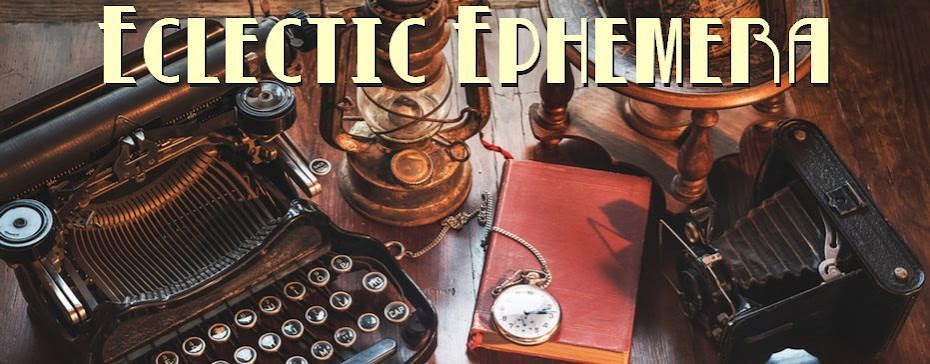As promised/ threatened, delving back into my Drafts archive has unearthed this post, originally written in November 2020. The subject: a then-recent feature film which would perhaps normally have appeared on this blog at the time of its release in September of that year - Enola Holmes. Instead it almost passed me by on its way to Netflix (as so many otherwise cinema-bound movies have, my not having a subscription to these things). Perhaps it is just as well, as having viewed the trailer I cannot help but have some misgivings about this particular foray into Victorian society and the Holmsian and despite its largely glowing reviews I find myself more in agreement with the few mixed responses I have read, for reasons that I will go on to explain.
I daresay I'm not the core target audience - the film being based on the Young Adult books by Nancy Springer and directed by Fleabag's Harry Bradbeer - and anything that encourages the younger generation to discover the joys of Conan Doyle's writing should be welcomed, but I cannot help but feel that the filmmakers are once again engaged in what amounts to an unnecessary degree of cultural revisionism.
It is one of the more debatable characteristics of this self-styled enlightened, modern society that the prevailing - and one might almost say arrogant - belief is that we are in every way better than the generations that have gone before. For my own part I have on multiple occasions put down on this blog my own thoughts on the subject of mixing the positive, still-valued elements of my preferred era with the undoubtedly welcome advancements of the modern day while at the same time recognising the more insupportable aspects. Although the need to keep defending this outlook continues to bother me I do feel it bears repetition.
Yes, a great deal of what went on centuries (or even decades) ago - in this instance the treatment of women in 19th century Britain - is in hindsight reprehensible but as the saying goes hindsight is a wonderful thing and it is unfair to judge (one might almost say to find those unable to defend themselves guilty by default) past cultures by modern standards. I wonder how we would we feel if our social mores - attitudes which we would not give a second thought to being anything but normal - were subject to such levels of criticism by a 23rd-century observer, to whom they might be an anathema?
Being as morally superior as possible will make no difference to what has occurred lifetimes ago. Deplore it, absolutely, learn from it, certainly, but stop applying 21st-century morals to previous eras. The past cannot be altered, so better to dismount from that moral high horse and focus on changing the present to make the future an even better place.
Anyway, with that particular rant over I will only say one further thing on the subject of Enola Holmes going by what little I have seen and read. While I repeat my hope that the appearance of this character on the [small] screen will inspire a new generation [of young women] and motivate them to seek out the works of Conan Doyle I cannot summon the level of enthusiasm I would have hoped a film like this might have instilled in me, mainly for the reasons I have outlined above. The characters of Sherlock and Mycroft, whom I might be more readily expected to relate with, have inevitably been altered to become more akin to antagonists to the main character. So much so, in fact, that in the case of Sherlock it has attracted the ire of the Conan Doyle Estate (who one might have assumed would have welcomed anything that would swell their coffers) to the point where they have instituted legal proceedings on the basis that Henry Cavill's characterisation of the Great Detective is too emotional and not in keeping with the character. While as a traditional Sherlockian I can appreciate their point of view (although not to the point of a lawsuit) I can understand the filmmakers' desire to give the character more depth for a modern audience for whom the idea of an unemotional man simply wouldn't scan. In any event if they do invest in the original stories off the back of this film they may be surprised to find any number of strong-willed female characters contained therein. Just off the top of my head I can think of half a dozen such examples, including Helen Stoner in The Adventure of the Speckled Band, Violet Hunter in The Adventure of the Copper Beeches, Violet Smith in The Adventure of the Solitary Cyclist, Lady Hilda Trelawney Hope in The Adventure of the Second Stain, and of course Irene Adler in A Scandal in Bohemia.
 |
| source - Wikimedia Commons Maud West, a female detective active in London from 1905 to 1939, here photographed disguised as a Salvation Army worker, circa 1920. |





No comments:
Post a Comment
Don't just sit there, type something! I enjoy reading all friendly and positive comments.